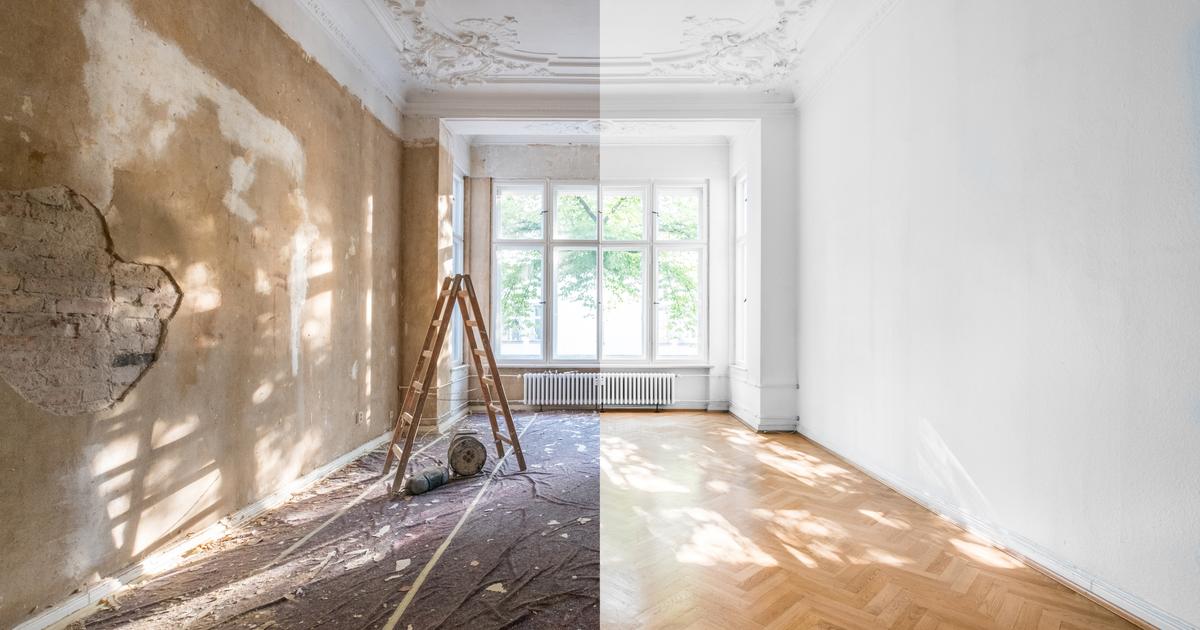How can we save energy?
Thanks to new and sustainable technology, anyone who has just built a new house will find the answer easier than someone whose house is several decades old.
What is energetically possible with existing properties?
As is so often the case, it's all about the money.
Künzell - Thomas Weber (61) from the municipality of Künzell has been an energy consultant for more than 20 years.
The civil engineer has been dealing with the subject of construction his entire professional life.
When he talks to the Fuldaer Zeitung about insulation, ventilation systems and pellet heating systems, it just bubbles out of him.
Energy consultant gives tips for renovation - 90 percent savings
The 61-year-old lives in a house from the 1950s that he renovated to make it more energy-efficient.
Weber already did pioneering work around the turn of the millennium and built the first passive house in the Fulda district, an apartment building on Weyherser Weg in Künzell.
A passive house is a low-energy house.
With the exploding energy costs, the need for energy advice is rising sharply, reports Weber.
However, given inflation, financial uncertainties are high.
Weber says that owners of older buildings in particular are realizing that they have to do something energetically.
A main clientele are homeowners who are about to retire.
"They want to invest in their building - but preferably in such a way that the investment will pay off in ten years at the latest," explains Weber.
That means you want to spend your money wisely.
If the successor generation is on board and, for example, the son and his family are growing, then it is easier to implement energy-saving measures because the younger generation is involved in the investment.
The elderly in particular are often disillusioned with the costs.
"It's unbelievable what you pay compared to 50 years ago: At that time you built for 200,000 Deutschmarks, today a renovation would cost 300,000 Deutschmarks." That is difficult for many to understand.
Nevertheless, the energy consultant always advises carrying out a holistic energy-related refurbishment.
"A partial renovation is bitter from an energy point of view and a missed opportunity," emphasizes Weber.
Anyone who immediately chooses the energy-related "renovation" for their building can save 90 percent of the energy.
And: Up to 65 percent of the energy that would then be required would come from renewable energies.
But the expert knows: "It's not environmental protection that moves people, but their wallets."
It is all the better that the state subsidizes energy-related renovations.
There is financial support for various measures in the form of subsidies or low-interest loans, for example from the Reconstruction Loan Corporation (KfW).
According to Weber, anyone who converts their house into a building with the "KfW-55" energy standard receives a subsidy of up to 20 percent of the total costs.
Energy consultant: "New heating is the biggest lever"
For a complete renovation, several "construction sites" lead to a climate-neutral and energy-efficient building: the heating, insulation and windows, the roof and the ventilation.
With a new heating system, you operate “the biggest lever in terms of energy,” emphasizes Weber.
In new houses, heat pumps that heat according to the refrigerator principle are mostly installed in combination with underfloor heating.
But in old buildings, this variant is usually uneconomical, the radiators would have to be replaced.
Weber recommends a pellet heating system that is "fed" with the renewable raw material wood.
If you throw out the oil heating, you have the free storage space that a pellet heating system needs.
+
Energy consultant Thomas Weber recommends pellet heating for old buildings.
(icon picture)
© Florian Schuh/dpa-tmn
"Only" new windows - the effect of this measure is overestimated by many, which brings only seven to ten percent energy savings, says Weber.
"New windows in combination with facade insulation - that's the dream team," he emphasizes.
One hardly works without the other.
In this way, heat loss can be minimized.
In other words: the heat stays in the house.
The expert recommends a thermal insulation composite system in which insulation is attached to the outside of the house facade and the building is replastered.
New windows: The effect of this measure is often overestimated
The roof also needs to be well insulated, which usually goes hand in hand with a new roof covering.
"When renovating old buildings, the rafters in the roof truss are usually too narrow, they have to be doubled up so that the thermal insulation can be attached between them, or you pack heating panels over them," says Weber.
It makes sense to think about photovoltaic panels on the roof in order to convert solar radiation into electricity, depending on the pitch of the roof.
PV systems are also subsidized.
Insulate, insulate, insulate - according to this guide credo, houses are becoming ever tighter.
If you ventilate too little, the risk of mold increases.
Weber therefore recommends a ventilation system with heat recovery, which also improves the air quality.
After all, it shouldn't be neglected either, "that you feel comfortable in your own four walls despite all the energy savings".
List of rubrics: © Florian Schuh/dpa-tmn














